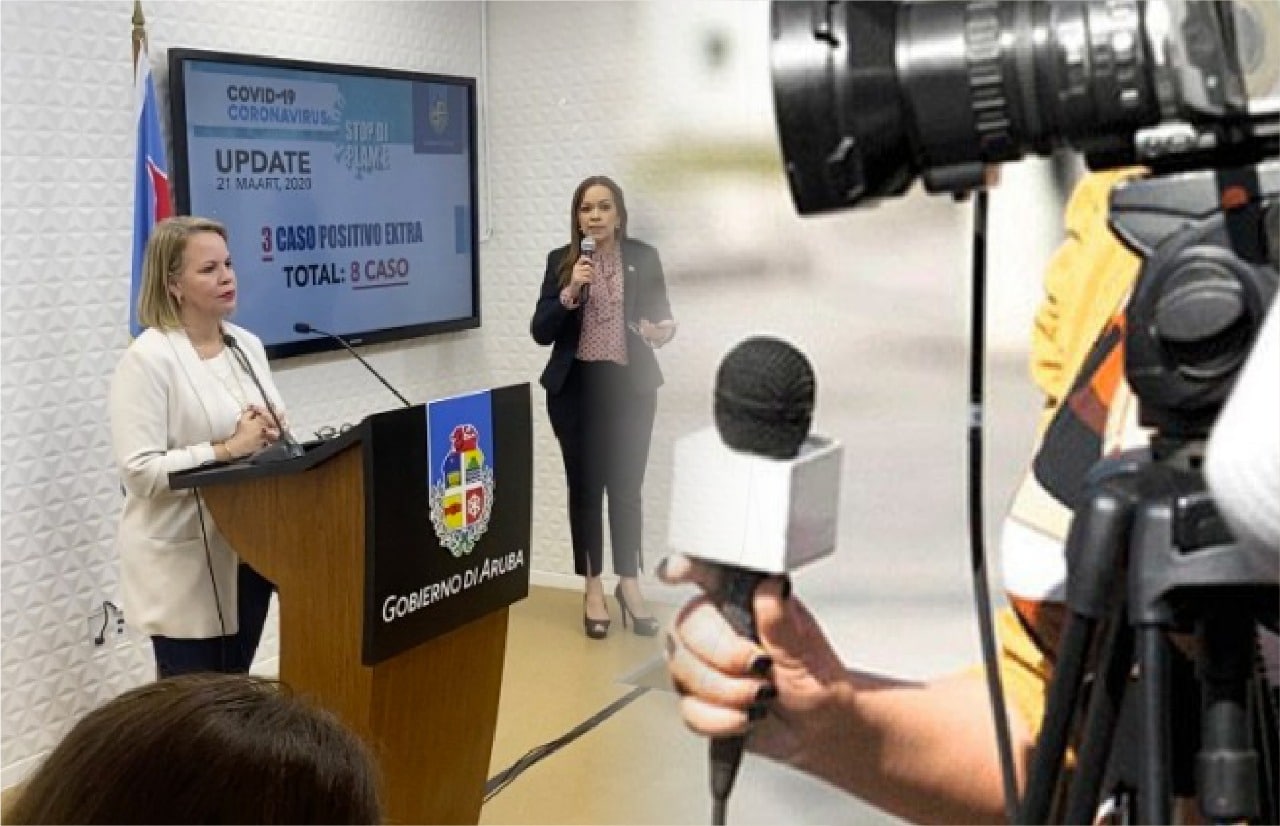Marko Espinoza, regional vice-president of the Inter-American Press Association (IAPA) in Aruba and a journalist with 24ora.com, publicly denounced that the imposition of a curfew in the country does not allow the movement of journalists because he considers that they do not do essential work.
The IAPA has an extensive account by Espinoza, where he assures that last March 20, Prime Minister Evelyn Wever-Croes said at a conference that reporters are not allowed to circulate under curfew. The next day, several local media representatives formed a committee and asked to meet with her to explain the importance of her role, but the official did not change the decree.
During that meeting, a reporter from NTR – Caribisch Netwerk reiterated that she would circulate freely because she needs to do her job and cover the news. The Prime Minister ended the meeting and said she was «too tired to deal with the press».
On 22 March, the government press department issued a statement condemning the media for defying it and disobeying it. That same day, journalist Sharina Henriquez was detained for two hours by the police as she returned home after reporting how tourists were facing Covid19 stranded on the island. She was also fined 1000 guilders ($500).
The Government of Aruba announced that only one police car will be allowed to circulate as long as the measure lasts. This was rejected by communicators, who argue that the agents limit their work.
Freedom of the press is guaranteed by article 1.12 of the Aruban Constitution and by international law (article 19 of the International Covenant on Civil and Political Rights).
IAPA President Christopher Barnes and Chairman of the Commission on Freedom of the Press and Information Roberto Rock urged the Prime Minister to reconsider the measure and allow the media and journalists to work without restrictions.
Fundamedios tried to communicate with Marko Espinoza via email, but until the publication of this note it was not possible.
Aruba restringe circulación de periodistas durante toque de queda por Covid19
Marko Espinoza, vicepresidente regional de la Sociedad Interamericana de Prensa (SIP) en Aruba y periodista de 24ora.com, denunció públicamente que la imposición del toque de queda en el país no permite la circulación de los periodistas al considerar que no cumplen con un trabajo esencial.
La SIP recoge un relato extenso de Espinoza, donde asegura que el pasado 20 de marzo, la primera ministra, Evelyn Wever-Croes, aseguró en una conferencia que los reporteros no pueden circular en toque de queda. Al día siguiente, varios representantes de los medios locales formaron un comité y pidieron reunirse con ella para explicarle la importancia de su rol, pero la funcionaria no cambió el decreto.
Durante ese encuentro, una reportera de NTR – Caribisch Netwerk reiteró que circularía libremente porque necesita ejercer su trabajo y cubrir las noticias. La Primera Ministra terminó el encuentro y aseguró que estaba “demasiado cansada para lidiar con la prensa”.
El 22 de marzo, el Departamento de Prensa del Gobierno emitió un comunicado donde condenó a los medios por desafiarlo y desobedecer. Ese mismo día, la periodista Sharina Henríquez fue detenida durante dos horas por la Policía mientras regresaba a casa tras reportar cómo los turistas enfrentan el Covid19 varados en la isla. Además, fue multada con 1000 florines ($500).
El Gobierno de Aruba anunció que solo se permitirá la circulación de la prensa en un automóvil policial mientras dure la medida. Esto fue rechazado por los comunicadores, quienes argumentan que los agentes limitan su trabajo.
La libertad de prensa está garantizada por el artículo 1.12 de la Constitución de Aruba y por el derecho internacional (artículo 19 del Pacto Internacional de Derechos Civiles y Políticos).
El presidente de la SIP, Christopher Barnes; y el presidente de la Comisión de Libertad de Prensa e Información, Roberto Rock, instaron a la Primera Ministra a reconsiderar la medida y permitir que los medios y periodistas trabajen sin restricciones.
Fundamedios intentó comunicarse con Marko Espinoza vía correo electrónico, pero hasta la publicación de esta nota no fue posible.

